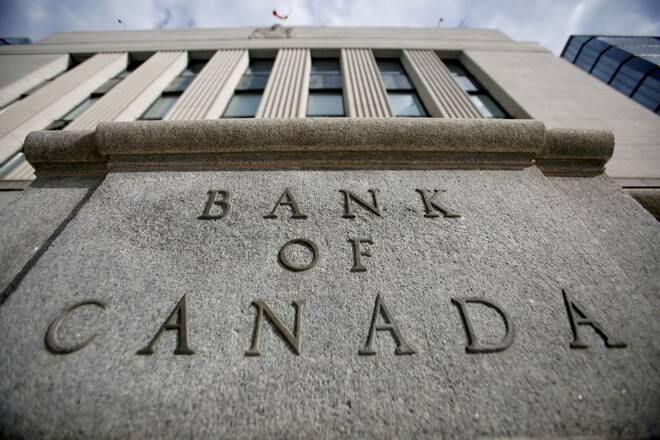Advertisement
Advertisement
Bank of Canada keeps interest rates unchanged, warns of Omicron uncertainty
By:
By Julie Gordon and David Ljunggren OTTAWA (Reuters) - The Bank of Canada on Wednesday held its key overnight interest rate at 0.25%, as expected, and maintained its guidance that a first hike could come as soon as April 2022.
By Julie Gordon and David Ljunggren
OTTAWA (Reuters) – The Bank of Canada on Wednesday held its key overnight interest rate unchanged, as expected, and said inflation was broadening even as it warned that the Omicron coronavirus variant has created “renewed uncertainty.”
The central bank, in a regular rate decision, left its key overnight interest rate at 0.25% and maintained guidance that economic slack would be absorbed in the “middle quarters” of 2022, setting the stage for a first rate hike as soon as April.
But it dropped a reference to the pressures pushing up prices as being “temporary,” while noting employment had returned to pre-pandemic levels, with job vacancies high and wage growth picking up.
“Inflation is elevated and the impact of global supply constraints is feeding through to a broader range of goods prices,” the Bank of Canada said.
“The effects of these constraints on prices will likely take some time to work their way through, given existing supply backlogs.”
While Canada’s economy had “considerable momentum” going into the fourth quarter, the central bank said that Omicron, along with “devastating floods” in British Columbia last month that cut off access to a key port, could hit economic activity.
“(This) could weigh on growth by compounding supply chain disruptions and reducing demand for some services,” it said.
The Canadian dollar was trading nearly unchanged at 1.2641 to the greenback, or 79.11 U.S. cents, after the decision, pulling back from its strongest level in nearly three weeks.
“Some in the market were looking for a signal of an imminent rate hike and that’s conspicuously absent. As a result, the Canadian dollar dipped on the decision,” said Adam Button, chief currency analyst at Forexlive.
Economists said the Canadian central bank was likely buying time until its January meeting, when it will update its economic forecasts, to get a clearer view of how Omicron and the B.C. flooding will impact economic activity.
“For now, I think it’s a waiting game until the January forecasts as we assess more information on Omicron,” said Derek Holt, vice president of capital market economics at Scotiabank.
Canada’s headline inflation has been above the central bank’s 1%-to-3% control range for seven months, as global supply chain bottlenecks and high energy prices fueled price acceleration.
The Bank of Canada reiterated that it expects inflation to remain elevated in the first half of 2022, returning to its 2% target in the second half of the year.
Money market rates eased between 8 and 10 basis points after the policy decision, with the market expecting the first hike in March or April, and five increases in total next year. [BOCWATCH]
(Additional reporting by Steve Sceherer in Ottawa and Fergal Smith in Toronto; Editing by Jonathan Oatis and Paul Simao)
About the Author
Reuterscontributor
Reuters, the news and media division of Thomson Reuters, is the world’s largest international multimedia news provider reaching more than one billion people every day. Reuters provides trusted business, financial, national, and international news to professionals via Thomson Reuters desktops, the world's media organizations, and directly to consumers at Reuters.com and via Reuters TV. Learn more about Thomson Reuters products:
Advertisement
